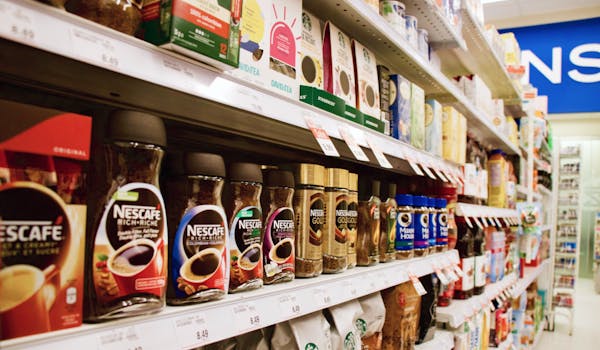
Breaking down the Spring Budget: what does it all mean?
16th Mar 2023
Laurie
If you know us, you’ll know we like to keep things simple. So, when the Chancellor set out his Spring Budget yesterday, we had one question…why does it have to be so complicated?
Big words, too many numbers, and information overload! Not our style.
But you’ll probably want to know how the budget affects you and your money. Cue our very easy-to-read breakdown of the key Spring Budget announcements 👇
Help with energy bills
This is a big ‘un. The Energy Price Guarantee will stay in place for an extra three months.
What’s the Energy Price Guarantee? It’s a limit on how much suppliers can charge you for each unit of energy you use.
Quick recap: the Energy Price Guarantee limit was set to increase from April this year. That means the average household’s bill would have jumped from £2,500 to £3,000 per year.
Fears over even more people being plunged into poverty made the government do a U-turn. So, the current limit will stay in place until the end of June 2023.
It’s really important to know that the price guarantee isn’t a cap on how much you could pay. The more energy you use, the higher your bills will be.
From June, it’s hoped that gas prices will fall and we’ll start to see energy bills come down.
💡 Reminder: the monthly energy discount (Energy Support Scheme) we’ve been getting this winter will still end on 1st April.
Do you have a prepayment meter?
From 1st July 2023, households on a prepayment meter won't pay any more than those who pay by Direct Debit. This could save you an average of £45 per year on energy bills.
Childcare costs

Childcare costs in the UK are expensive and they can stop parents from being able to go back to work. Yesterday, the Chancellor announced that more childcare support will be available for working parents from next year.
At the minute, working parents of three and four-year-olds can get 30 hours of free childcare each week. This is being extended to include younger children:
April 2024 - working parents of two-year-olds can get 15 hours of free childcare each week.
September 2024 - working parents of nine-month to two-year-olds can get 15 hours of free childcare per week.
September 2025 - working parents of nine-month to three-year-olds can get the full 30 hours of free childcare per week.
💡 These changes only apply to households where both parents are working.
Childcare support paid upfront
If you’re a parent claiming Universal Credit, your Child Support will be paid upfront, instead of having to claim it back.
And the maximum amount you can claim is going up:
- £951 for one child
- £1,630 for two children
Huge amounts of Universal Credit go unclaimed each year. If you suspect you’re missing out, see if you’re eligible and apply online.
Alcohol and cigarette prices
Bad news for smokers. The duty on cigarettes is rising by RPI (Retail Price Index) plus 2%. That could add around £1.75 to a pack of cigarettes.
Alcohol tax is also rising by 10.1% in August, particularly on wine and spirits. So, your favourite bottle of wine could cost around 45p more this year.
In a boost for landlords and draught drinkers, the tax rises won’t apply to draught beers in pubs.
Fuel duty freeze
What’s fuel duty? It’s the tax that’s included in the price you pay for petrol, diesel, and other fuels.
The Chancellor confirmed that fuel duty won’t be going up and has been frozen for another year. Last year, the government cut fuel duty by 5p per litre. This cut will also stay in place for the next 12 months.

Work capability assessment scrapped
What's a work capability assessment? It’s how the Department for Work and Pensions decide if someone with a health condition or disability can get certain benefits, like Universal Credit.
If someone undergoes the test and is deemed fit for work, their benefits might be taken away. So, the assessment has faced some heavy criticism.
Moving forward, the assessment will be scrapped. The government says this change means people who claim disability benefits will be able to work towards finding a job without worrying about financial support being taken away.
Everyday costs keep rising

The price of everyday essentials has been going up and up due to inflation. With prices increasing and wages staying the same, the result has been the cost of living crisis. People are struggling to afford food, petrol, bills, and more.
And while the Energy Price Guarantee has been extended and fuel duty frozen, we’ll still be facing some really tough increases this year.
Supermarket prices will keep going up, just not as fast as they have been. And from April, millions of us will see higher broadband and mobile bills, and higher mortgage demands.
Visit our cost of living hub
We’ve created a hub where you can find the latest news, government updates and other resources because we know how hard it is to know what to do or where to find help. If you’re concerned about your cost of living, take some time to read through the resources we’ve provided. You might find extra support or advice that could really help.
< Back to articles
